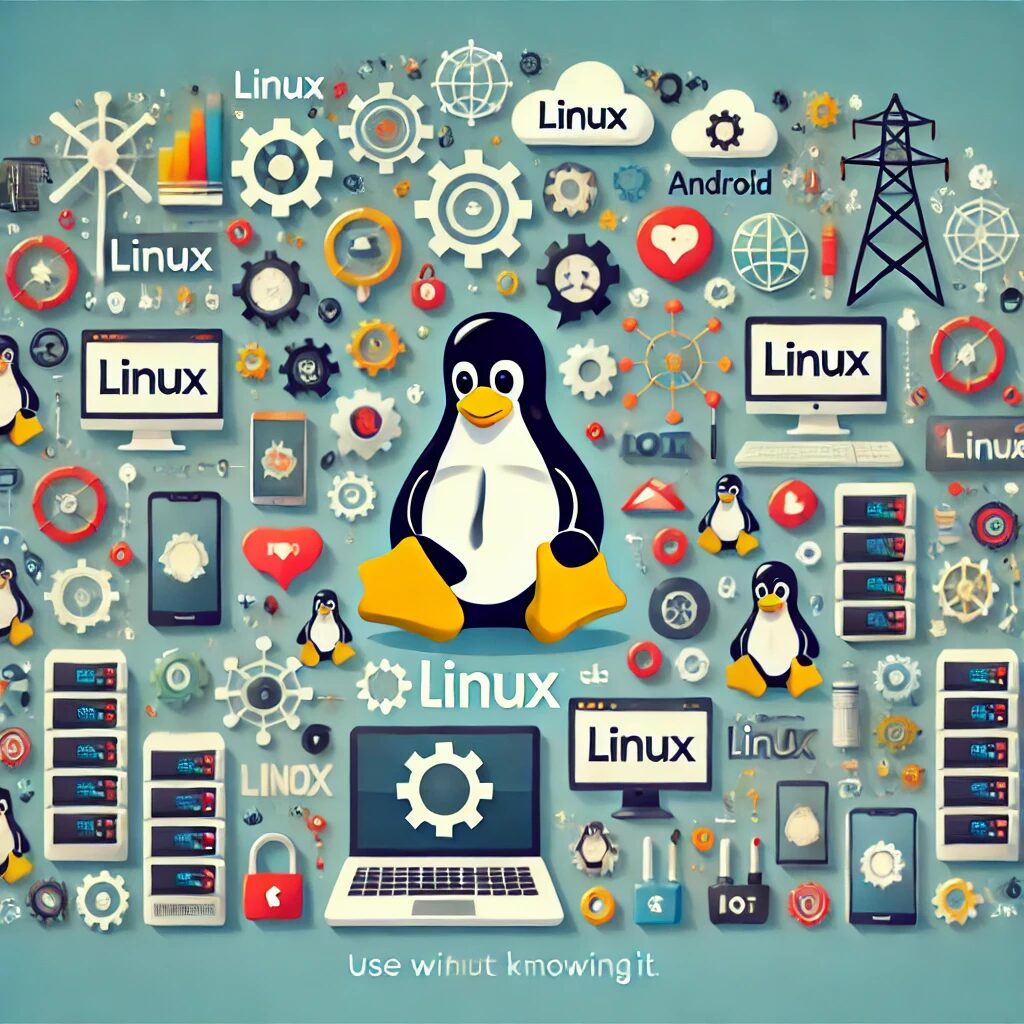When people think about Linux, they often picture computer geeks typing away on complex command lines, developing software, or managing servers. However, the reach of Linux extends far beyond the stereotypical user base. In fact, if you are reading this article, chances are you are using Linux in more ways than you realize. Linux, an open-source operating system, powers a vast array of devices and systems that we use every day. Let’s explore the surprising places where Linux is quietly at work, enhancing our daily lives.
Smartphones and Tablets
Did you know that if you use an Android phone or tablet, you are essentially using a Linux-based operating system? Android, developed by Google, is built on the Linux kernel. The Linux kernel provides the foundation upon which the Android OS is developed, ensuring it has the stability and flexibility required for a wide range of mobile devices. So, every time you check your messages, browse the web, or play a game on your Android device, you are interacting with Linux.
Smart Home Devices
The rise of smart home technology has brought Linux into our living rooms and kitchens. Many smart home devices, such as smart speakers, thermostats, and security cameras, run on Linux-based operating systems. For example, Amazon’s Echo devices, which use the Alexa voice assistant, are powered by Linux. Similarly, many smart TVs from brands like Samsung and LG also use Linux to provide their operating systems, enabling you to stream your favorite shows and movies.
Routers and Networking Equipment
Your home or office internet connection likely relies on Linux more than you might think. Most routers and other networking equipment use Linux-based firmware to manage network connections. The flexibility and security of Linux make it an ideal choice for these critical devices. OpenWrt, for instance, is a popular open-source firmware for routers based on Linux, offering advanced features and customization options.
Automobiles
Modern cars are essentially computers on wheels, and many of them run Linux-based systems. Automotive giants like Tesla, Toyota, and Honda use Linux in their infotainment systems, navigation systems, and even for controlling critical vehicle functions. The Automotive Grade Linux (AGL) project is an open-source initiative that aims to create a unified platform for the automotive industry, further extending the reach of Linux into our daily commutes.
Embedded Systems
Embedded systems are specialized computing systems that perform dedicated functions within larger mechanical or electrical systems. These can be found in various devices, including digital cameras, medical equipment, industrial machines, and even household appliances like washing machines and refrigerators. Many embedded systems run on Linux due to its adaptability and low resource requirements, allowing these devices to operate efficiently and reliably.
Cloud Services and Web Hosting
When you access cloud services or visit websites, there is a high probability that you are interacting with servers running Linux. Major cloud service providers like Amazon Web Services (AWS), Google Cloud Platform (GCP), and Microsoft Azure rely heavily on Linux to power their infrastructure. The stability, scalability, and security of Linux make it the preferred choice for web hosting and cloud computing. Whether you are using Gmail, Dropbox, or Netflix, Linux is working behind the scenes to deliver these services seamlessly.
Supercomputers
The world’s most powerful supercomputers use Linux. These machines handle complex computations and simulations for scientific research, weather forecasting, and advanced engineering. The flexibility and performance of Linux allow these supercomputers to process vast amounts of data efficiently. As of now, over 90% of the top 500 supercomputers in the world run on Linux, showcasing its dominance in high-performance computing.
Internet of Things (IoT)
The Internet of Things (IoT) refers to the interconnected network of devices that communicate and exchange data with each other. From wearable fitness trackers to smart refrigerators, many IoT devices run on Linux-based operating systems. Linux provides the necessary security, stability, and connectivity features that enable these devices to function and interact with each other effectively.
Conclusion
As we have seen, Linux is an integral part of our daily lives, often operating behind the scenes in a multitude of devices and systems. From smartphones and smart home devices to automobiles and supercomputers, Linux’s versatility and robustness make it the go-to choice for many applications. Even if you have never used a Linux desktop or server personally, you are undoubtedly benefiting from the power and reliability of Linux every day. So, the next time you use your smartphone, stream a movie, or adjust your thermostat, take a moment to appreciate the invisible role that Linux plays in making it all possible.




